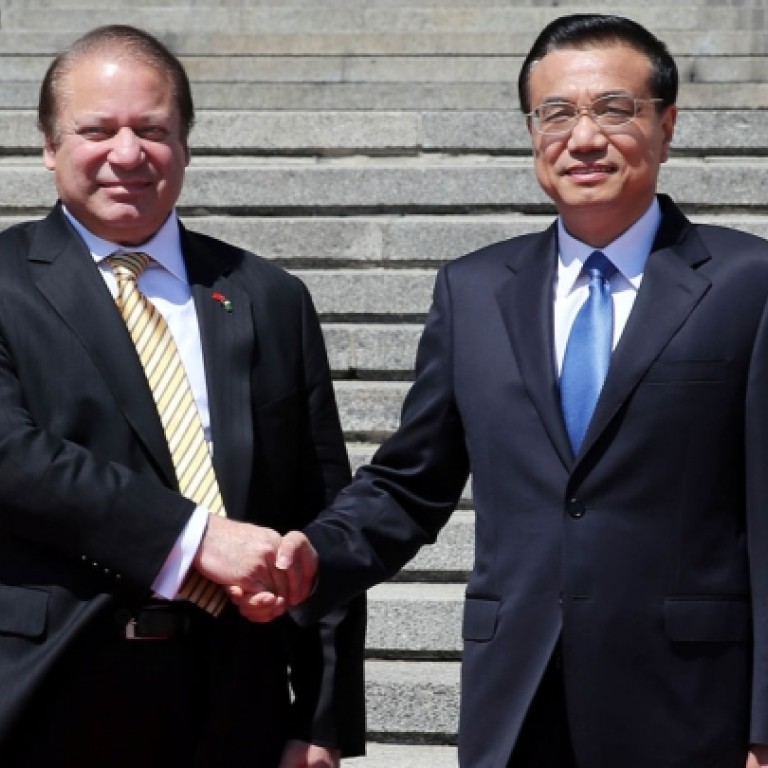
In rising Asia, China-Pakistan relations grow closer
Dan Steinbock says their partnership is as much economic as strategic
Our friendship is higher than the Himalayas and deeper than the deepest sea in the world, and sweeter than honey," Pakistani Prime Minister Nawaz Sharif told his Chinese counterpart, Li Keqiang , at the start of their recent meeting in Beijing.
Sharif's visit anticipates a shift in Pakistan's economic and foreign policies. In Islamabad, China is today seen as a regional counterweight to Washington and Nato. Beijing supports Islamabad's position on Kashmir, while Pakistan supports China on the issues of Xinjiang , Tibet and Taiwan.
Economic co-operation has accelerated with a free-trade agreement and China's assistance in the development of Pakistan's infrastructure. In 2012, two-way trade exceeded US$12 billion.
Nevertheless, Beijing's recalibration is not just a response to the Obama pivot
Last year, China purchased more than half of its oil from the Middle East. China is also the largest investor in Pakistan's deep-water port at Gwadar, located at the mouth of the Strait of Hormuz. In the long term, the two nations hope to connect Kashgar in western China to Gwadar. Some 60 per cent of China's oil comes from the Gulf by ships travelling over 16,000 kilometres in two to three months, but Gwadar could reduce the distance to 2,500 kilometres.
Typically, the US and India see Gwadar less as economic and more in strategic terms - as a key part of the alleged Chinese strategic ambition to project its power into the Indian Ocean. While the project could prove a "game changer" for both Pakistan and China, the route will run through Baluchistan province, where gas and mineral projects have already sparked insurgencies.
Sharif's Pakistan Muslim League-Nawaz (PML-N) is expected to rejuvenate the economy, improve security, contain the jihadist attacks and bring an end to US drone strikes. However, Sharif's overriding focus will be on economic development.
After the global recession in 2008-09, real gross domestic product growth has averaged only 3 per cent annually, which is insufficient to achieve substantial improvements in living standards and absorb the rising labour force.
Economic challenges have been accompanied by political shifts. As the Bhutto dynasty is fading into history, the Pakistan People's Party has lost the support of the nation. Politically, Sharif's PML-N could make difficult decisions on its own. That, however, requires progress on critical structural reforms, especially in tax administration and the energy sector.
Last month, Finance Minister Ishaq Dar described the economy as "shattered". Just last week, Islamabad secured a bailout loan of US$5.3 billion from the International Monetary Fund.
In the 1950s, Islamabad was among the first to recognise the People's Republic of China. Following the 1962 Sino-Indian war, both countries began to nurture a close relationship. Today, China is Pakistan's major supplier of arms and trading partner. The two are co-operating in Pakistan's civil nuclear power sector.
During US President Barack Obama's first term, Washington began an extensive pivot to Asia. At the same time, China's role is steadily increasing.
China's rebalancing in South Asia is based on energy concerns, economic imperatives in Pakistan, and bilateral co-operation to contain Islamic insurgencies in the restless border regions.
Nevertheless, Beijing's recalibration is not just a response to the Obama pivot. It also reflects China's rising strategic weight, the structural crises of the major advanced economies, and the shift of economic momentum to Asia.

